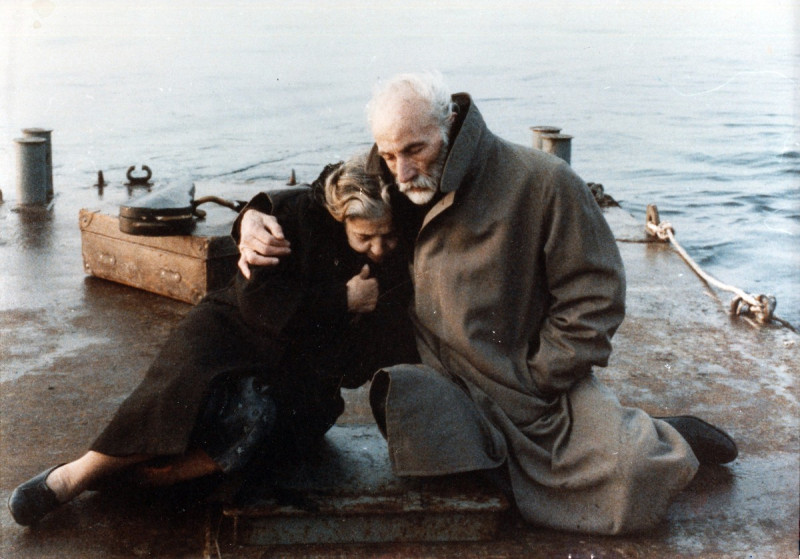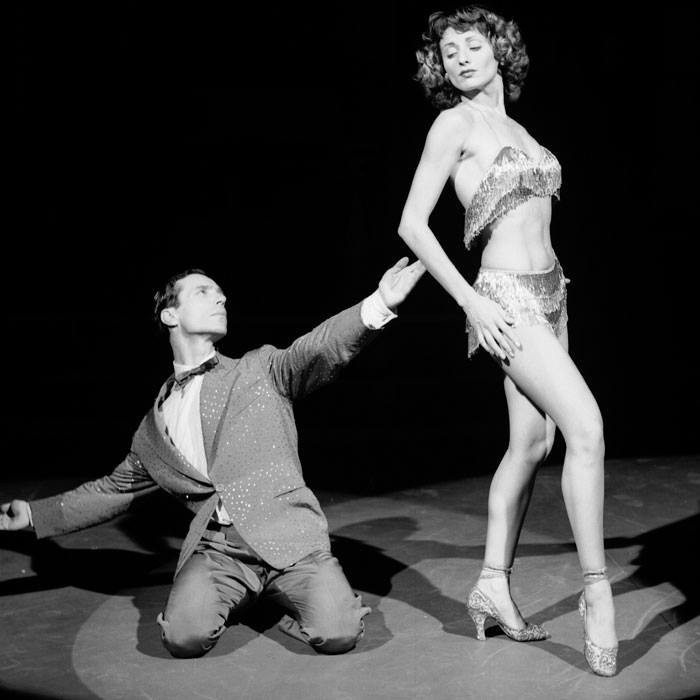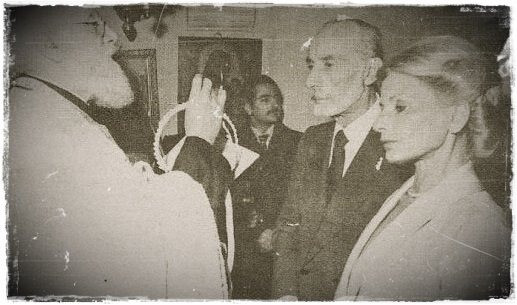The meeting of Manos Katrakis with Yiannis Ritsos and Menelaos Ludemi – The unbeaten duo with Vassilis Avlonitis
THE Manos Katrakis she wasn’t just one of the top actors in the country, but her haughty walk. He carried in his lean body, sculpted like an engraving by A. Tassos, the tortured history of the place, its proud moments, through his immortal interpretations, but also his proud life attitude.
An indomitable personality, Manos Katrakis was not a saint – the mold was broken by another Cretan, the archangel Nikos Xylouris – but a man with passions and weaknesses, a symbol of the mosaic that makes up the wider Romanism.
His biblical figure, the Levantine demeanor, the sparkling eyes, his interpretive majesty and that voice, fascinating in itself, a melodic adventure, an Odyssey that will always return us to our roots, were supernatural gifts, unimaginable how concentrated on a barefoot child from Kasteli Kissamos.
Poetry and mental honesty
Versatile actor, who played everything in theater and cinema, recited unique poems set to music, masterpieces of romance and put them on the lips of millions of people – even those who could not read and write, did not have the luxury of books. However, as the leading theater person used to say Alexis SolomosKatrakis did not intervene in the theatrical life of our country, for all the above, but “for his absolute mental devotion to art”. To add meaningfully – as another lesson to the younger generation, which unfortunately, very few follow, what a great actor means, what Katrakis means: “Without self-interested motives, without compromises and self-admiration, he offered us performances with a spiritual message, patriotic feeling and humane breath. Strange as it may seem, the “art of acting” is not based on hypocrisy, but on mental honesty.” In the most humble way, it should be mentioned that Katrakis, acting in several mediocre films, for livelihood reasons, he would be there to fascinate, to cover with his shadow everything that caught the eye, to remove the obvious inadequacies of Greek cinema.
It has already been forty years since his death (September 2, 1984) and unfortunately, there are people, especially the younger ones, who may recognize his voice, subliminally giving them a parenthesis of humanity and interpretative greatness, through the old films shown on television, but they do not know that the theater stage could not accommodate his imposing form, his constantly fed source of talent, the hardships he went through because of his political beliefs and his sensitivity, his love for his fellow man. And of course the blows of fate, the exiles, the tortures, his passion for gambling, his love for the woman of his life.
Family protector
Manos Katrakis was born on August 14, 1908 in Kasteli Kissamos, Crete and was the youngest of his five children. Charalambou Katrakis and of Irene, who had a weakness for her, as she had taken from her her stubbornness and her unruly character. In 1919, his family moved to Athens, and from a young age he was forced to come of age and become the family’s breadwinner, as his father was often “away on business” and his older brother had left for America.
From football to Kotopoulis
Soon, however, he began to deal with the things he liked. He initially plays football, first for Atsalenios and then for Athinaikos, while at the age of 19 he will enter the theater, where he will catch the attention of the director, among them Kostas Leloudawho will choose him to play in his first silent film “The Banner of ’21”. In 1932 and while she passed through her troupe Marikas Kotopoulis and his “People’s Theatre”. Vasilis Rotawill be hired at the newly founded National Theatre. The critics of the time bowed to his talent and many doors would open.
On the Greek-Albanian front and in the EAM
In 1943 and while he had fought on the Greek-Albanian front, where he had an accident and was saved by a horse, he will join the national resistance and fight the German invaders from the lines of the EAM and their “friends” afterwards, he will take over as president of the Union of Greek Actors and contributed the most to the establishment of the State Theater of Thessaloniki, where he performed until 1946.
Makronissos
Katrakis will briefly return to Ethniki, but will be kicked out a year later due to his leftist beliefs. He had chosen, as he said himself, to become a communist. He will pay dearly for this. Refusing, even after his mother’s urging, to sign a “declaration of repentance” he will be exiled to Ikariato Ai Strati and in Makronisowhere he will meet another select group of companions from the arts – from Yannis Ritsos and Javala Caruso until Menelaus Ludemi – , but also the simple disobedient fighters, who were unfazed by torture, hardship and the inhumanity of an entire era, which still haunts us. As Savvopoulos used to say in the 70s, in the well-known song “The Term”: “My mother, everything passes and everything happens again, but this term does not stop anywhere”.
The good times at the cinema
In 1952 he will return to Athens, but the post-modern state will continue to hunt him. The doors are closed, but he will slowly open them with his talent and his persistence. Although he has always been in the limelight, he will be back, to fill the theaters and make some great movies. Of the approximately 80 films he would act in, the best of them were “Marinos Kontaras” (1948) by George Tzavellas, “Antigone” (1961) also by Tzavella, “Electra” of Kakogiannis, “The Dream District” (1962) by Aleks Alexandrakis and “The Trip to Kythira” (1984) by Theodoros Angelopoulos, where there was also his swan song. He also acted in some interesting productions such as “The Red Lights”, “The Block”, “Eleftherios Venizelos” “The Soil Was Painted Red”, “Betrayal”, “Concerto for Machine Guns”, “The Jungle of Cities”, “The Betrayal» etc.
When fate commands
His life, in addition to the political persecutions, had other sad adventures in store for him. Poor from the cradle, he was not afraid of the vicissitudes of life, but in possession and in the deadliest winter, it forced him to exceed his limits. Having even remarried, the Nena Vrakotsolihe was trying to find ways to make a living, even selling his suits. The worst, however, was the pregnancy of his wife, who failed to keep the twins she was carrying from suffering. She lost them in the eighth month of pregnancy and while Katrakis had sold everything. Struck by fate and desperate, at that time he will also get hooked on gambling, playing “31”. The first time he won, the rest, as usually happens, he lost. Years later, he would turn to horse racing, putting his money on the horses he loved so much. Along with him Avlonite they will make an unbeaten duo in Jitzifies.
The woman of his life
Linda Alma, who met him in 1955, when she founded the Hellenic People’s Theater and saw him on the board, was enchanted. As the lithe dancer had confided, “with the first words she said, as if my heart beat”. The atheophobe caused this skirmish on the stage. But for Alma, it was obviously something more. After living together for 25 years, she being patient and enduring his persuasions, they will get married in 1979, in a small church, “at the bends of Eutaxias”, next to Eleusis, in a very close circle. But Katrakis also loved her more than anything else, while he admitted that he mainly gave her “bitterness”, even though, as he said, “after all, there is nothing else besides Linda. Neither was, nor is there.”
The voice of our conscience
Manos Katrakis, with a vulnerable body from the hardships, will die of lung cancer, without accepting the strict treatments recommended by the doctors, also due to his passion for cigarettes. A few days after the completion of the filming of the movie “Journey to Kythira” and while he has already been hit by cancer, he will take his last breath. Actually his last voice. And as he had said “even if I knew the language of Rakina and Moliere I would still speak Greek to you.” Perhaps because it will forever remain the voice of our conscience.
Source :Skai
I am Frederick Tuttle, who works in 247 News Agency as an author and mostly cover entertainment news. I have worked in this industry for 10 years and have gained a lot of experience. I am a very hard worker and always strive to get the best out of my work. I am also very passionate about my work and always try to keep up with the latest news and trends.













